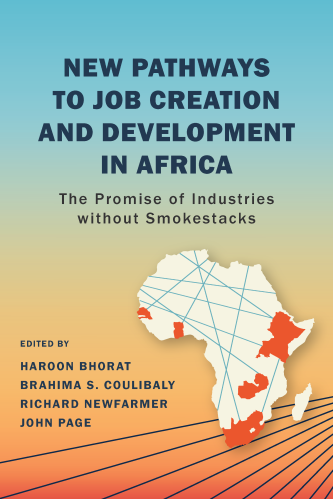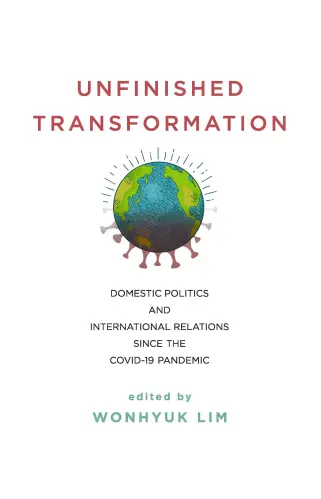On Friday, March 23, a panel of Brookings experts discussed the ongoing conflict in Syria. Listen to the event here.
Seven years after the Syrian uprising against President Bashar al-Assad, the country remains mired in conflict. As Brookings experts have analyzed, the United States, Russia, Turkey, Iran, and other regional powers are entangled in the conflict in one way or another, with varying aims.
With the seventh anniversary of the Syrian conflict—March 15—come and gone, Brookings experts have offered their insights on the ongoing geopolitical quagmire in Syria.
In a new Unpacked video, Nonresident Senior Fellow Mara Karlin lays out the different actors engaged in the conflict, and offers thoughts on U.S. policy moving forward:
RUSSIA
As David M. Rubenstein Fellow Alina Polyakova explains, Russia’s military intervention in Syria began in September 2015 under the guise of combating ISIS but in reality sought to keep the Assad regime afloat: “[F]rom the outset, the Russian air campaign primarily hit non-ISIS targets. It soon became clear that Putin’s chief goal was to ensure the future of Bashar al-Assad, the Syrian dictator.”
Although Russian President Vladimir Putin has declared “victory” over ISIS in Syria, Nonresident Senior Fellow Pavel Baev points out that “Russian forces on the ground are still taking casualties, Russia’s alliances are in disarray, and its Syria policy has lost decisiveness and direction.”
As Polykova puts it: “Indeed, it is difficult to see a clean Russian exit from Syria that doesn’t leave Assad vulnerable.”
ISRAEL, IRAN, AND HEZBOLLAH
According to Nonresident Senior Fellow Mara Karlin, Syria has also become a battleground for regional powers in the Levant, chiefly Israel, Iran, and Iranian proxies like Hezbollah. For Hezbollah, she argues that supporting the Assad regime has been paramount: “Hezbollah has gained substantial operational experience in Syria, where it has effectively knit together a number of violent nonstate actors in support of its expeditionary mission to prop up President Bashar al-Assad.”
For Israel, Karlin contends, “Its border with Syria, historically its quietest, is now unhinged. The Israeli leadership has made no secret of its concern about Hezbollah’s military maturation in the Syria conflict.”
And now with ISIS driven out of Syria, Karlin fears that such regional arch-rivals (Iran and Israel) could clash in Syria: “The resulting tensions are likely to bring Israel to the brink of a regional war even bigger than the last one in 2006, when it invaded southern Lebanon.”
Visiting Fellow Dror Michman and Yael Mizrahi-Arnaud also see cause for concern over heightened tensions and escalation. In February, Israel shot down an Iranian drone in response to a Syrian attack on an Israeli plane. Michman and Mizrahi-Arnaud explain that Israel “has conveyed privately to European leaders—to relay to Tehran—that if a diplomatic solution could not be worked out, Israel would use military means.” Tehran is making its own calculations: “[it] is determined to not only preserve the Assad regime, but also to capitalize on its gains,” they write.
Michman and Mizrahi-Arnaud warn that Iran will continue to challenge Israel, and Israel will be forced to react, increasing the possibility of military conflict.
THE UNITED STATES
Distinguished Fellow Itamar Rabinovich argues that the United States, even under President Trump, still has no clear exit strategy from the Syrian quagmire:
The president’s tough anti-Iranian rhetoric has so far not translated into real anti-Iranian action in Syria. America’s limited military presence in northeastern Syria and its alliance with the Kurds gives it limited influence in the struggle over shaping Syria’s future. [Former] Secretary of State Tillerson, in a speech he delivered in mid-January, presented Washington’s strategy in Syria, but the goals he set for his country’s policies are not realistic.
The U.S., adds Karlin, is at a crossroads in Syria: “The fundamental debate for Washington going forward must focus on whether counter terrorism or broader geopolitical affairs should be the priority in Syria.”
TURKEY
Turkey entered the fray in Syria, according to TÜSİAD Senior Fellow Kemal Kirişci, once “Obama failed, in 2013, to stand by his ‘red line’ concerning the use of chemical weapons against civilians. Turkey, in a major departure from longstanding statecraft, then began to seek the violent overthrow of the regime of a neighboring country.”
And as Senior Fellow Daniel Byman points out: “Turkey’s willingness to keep its border open in the first years of the war as fighters crossed back and forth enabled the Islamic State and other groups to recruit tens of thousands of foreigners to their ranks.”
But now, as Visiting Fellow in the Brookings Doha Center Ranj Alaaldin explains, Turkey’s goals in Syria have changed as the regime sees the U.S.-backed Syrian Kurdish militias along its border as a threat:
Turkey fears that an emboldened Syrian Kurdistan and the predominance of the YPG—the armed wing of the Democratic Union Party (PYD), which has gone from strength to strength in recent years—would fuel its own restive Kurdish population and, therefore, strengthen the PKK’s insurgency.
This adds a new element of danger to the conflict, adds Kirişci: “This situation risks bringing Turkey and the United States into a military confrontation, unheard of in their 70-year long alliance.”
WHATS NEXT?
After seven long years of war, Post-Doctoral Fellow Katy Collin paints a grim picture:
At the moment, it seems that prospects for peace in Syria through a negotiated settlement are dim. It appears as if the Syrian regime intends to regain control of some or all of the rebel-held territory. That is quite a bit of land, and therefore this year might be characterized by more horrific violence targeting civilians.
Karlin also contends that the race to capture territory no longer under ISIS’s control could spark more geopolitical tensions. “A race to claim the last territory under ISIS control is now giving way to jostling for influence over a potential settlement in the broader war. And that’s very dangerous,” she says.
Senior Fellow Michael O’Hanlon, during the event What’s next for the war(s) in Syria?, argues that the Geneva process is counterproductive and a realistic transition plan is still absent:
I think the Geneva process is counterproductive, not just a long shot, but counterproductive because it deludes us into thinking we have a political strategy when we don’t. And I would rather see it simply terminated or fundamentally redefined along the following lines: let’s acknowledge there is not going to be a negotiated transition of power in Syria in the short-term, period.
Instead O’Hanlon contends a more realistic approach for a post-conflict political transition:
My bottom line is that the only thing we can hope for with Assad is that he allow autonomous governance in some of these more remote areas and we should work hard on a full-bore reconstruction effort there and even try to persuade the World Bank and other foreign donors to work with these subnational entities as they emerge.
Regardless, it is clear that a stabilization strategy is needed. O’Hanlon writes that the United States may not be willing to invest in such a strategy. Senior Fellow Tamara Cofman Wittes and Brian Reeves lay out an international framework for reconstruction for Syria and the region more broadly.
And ultimately the Syrian state will continue to be a battleground, notes Distinguished Fellow Itamar Rabinovich: “Now, the conflict focuses more and more on the country’s future as a pawn in the struggle between the principal regional and international actors.”
The Brookings Institution is committed to quality, independence, and impact.
We are supported by a diverse array of funders. In line with our values and policies, each Brookings publication represents the sole views of its author(s).







Commentary
Seven years of Syria’s civil war: What Brookings experts are saying
March 29, 2018